Important Dates
| Release of data, code, and metrics for training | Nov. 15, 2021 |
| Release of examples for submission files | Jan. 21, 2022 |
| Release of data and metrics for testing | Jan. 31, 2022 |
| Challenge workshop website goes live | Feb. 01, 2022 |
| Submission deadline of results and papers | Feb. 28, 2022 |
| Response from reviewers | Mar. 21, 2022 |
| Registration deadline and BRIGHT Workshop | Mar. 27, 2022 |
| Camera Ready Version of the paper | Apr. 03, 2022 |
| Post-workshop leaderboard release | Apr. 04, 2022 |
| Submission deadline for manuscripts | Apr. 21, 2022 |
| Publication of challenge outcomes | Oct. 01, 2022 |
Like the BRIGHT Challenge?
Try the KNIGHT challenge for kidney images.
Organizers
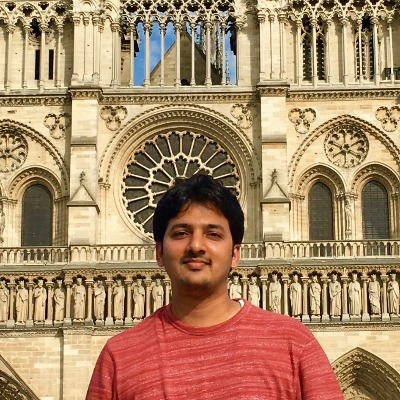
Pushpak Pati, IBM Research – Zurich, Switzerland
-
Bio
Pushpak Pati received his M.Sc. degrees in Electrical Engineering from ETH Zurich, Switzerland, in 2017. He is currently working toward his Ph.D. degree as part of a collaboration between ETH and IBM Research Zurich. His research focuses on histopathological prior-guided representation learning in digital pathology. During his PhD, Pushpak contributed to the development of interpretable tissue representation and modeling for various pathology tasks by leveraging Graph Neural Networks and Deep Metric Learning under supervised, weakly-supervised, and annotation scarcity settings.

Guillaume Jaume, IBM Research – Zurich, Switzerland
-
Bio
Guillaume Jaume received his B.Sc. and M.Sc. degrees in Electrical Engineering from the École Polytechnique Fédérale de Lausanne (EPFL), Switzerland, in 2017. He is currently working toward his Ph.D. degree as part of a collaboration between EPFL and IBM Research Zurich. His research focuses on deep learning for graph-structured data with applications to computational pathology. During his PhD, he contributed to the development of graph-based representation and modeling of histopathological tissues, notably by taking advantage of the expansion of Graph Neural Networks. Specifically, Guillaume explored three lines of research in computational pathology: scalability, explainability and weakly supervised settings.
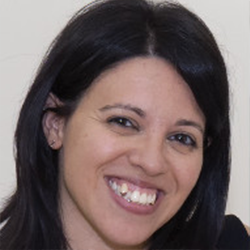
Nadia Brancati, National Research Council of Italy, ICAR-CNR, Naples, Italy
-
Bio
Nadia Brancati received her M.Sc. degrees in Computer Science “cum laude” at the University of Naples Parthenope in 2008. She is a researcher at the National Research Council of Italy. Her research interests include mainly Image Processing, Computer Vision and Human Computer Interaction, in particular Segmentation, Image Analysis, Classification and Medical Imaging. She has experience in Machine Learning, with particular reference to Deep Learning. She is actively involved in international/ national projects, even with industrial collaborations. She has participated to two international competitions (BACH 2018 and SSRBC 2017), resulting for both at the second position in the ranking. She is a member of the Italian Association for Computer Vision, Pattern Recognition and Machine Learning (CVPL). She has co-organized the recent Workshop "Artificial Intelligence for Digital Pathology" (AIDP) in ICPR2020.
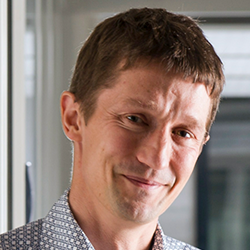
Henning Müller, HES-SO, Valais, Switzerland
-
Bio
Henning Müller is a professor in computer science at the HES-SO in Sierre, Switzerland, and in medicine at the University of Geneva, Switzerland. Henning is also one of the co-authors of the BIAS checklist [3].

Daniel Riccio, National Research Council of Italy, ICAR-CNR, Naples, Italy
-
Bio
Daniel Riccio received the Laurea degree “cum laude” and the Ph.D. degree in Computer Sciences from the University of Salerno, Italy, in 2002 and 2006, respectively. He is currently an Associate Professor at the University "Federico II" of Naples. He is an Associate Researcher at the National Research Council of Italy. His research interests include biometrics, medical imaging, image processing and indexing, image and video analytics. He has participated to two international competitions (BACH 2018 and SSRBC 2017), resulting for both at the second position in the ranking. Daniel Riccio is an IEEE member and a member of the Italian Association for Computer Vision, Pattern Recognition and Machine Learning (CVPL). He has co-organized the recent Workshop "Artificial Intelligence for Digital Pathology" (AIDP) in ICPR2020.

Giuseppe De Pietro, National Research Council of Italy, ICAR-CNR, Naples, Italy
-
Bio
Giuseppe De Pietro is Director of the Institute for High-Performance Computing and Networking - CNR, and Adjunct Professor at the College of Science and Technology of Temple University - Philadelphia. His current research interests focus on artificial intelligence, clinical decision support systems, software architectures for e-health. He has been actively involved in many European and national projects, even with industrial collaborations. He is currently the coordinator of the European SMART BEAR and AI4HEALTHSEC H2020 project. He is the author of over 200 scientific articles published in international journals and conferences and is involved in many program committees and journal editorial boards. He is a member of IEEE and KES International. He has co-organized the recent Workshop "Artificial Intelligence for Digital Pathology" (AIDP) in ICPR2020.

Antonio Foncubierta, IBM Research - Zurich, Switzerland
-
Bio
Antonio Foncubierta is a Research Staff Member at IBM Research, where he leads the Computational Pathology team. He received the PhD in Computer Science degree from University of Geneva, Switzerland in 2014; worked as a research assistant from 2010 to 2014 at the Medgift group at Business Informatics Institute of the University of Applied Sciences and Arts Western Switzerland and then as a postdoctoral researcher at the Computer Vision Lab of the Swiss Federal Institute of Technology Zurich (ETHZ).
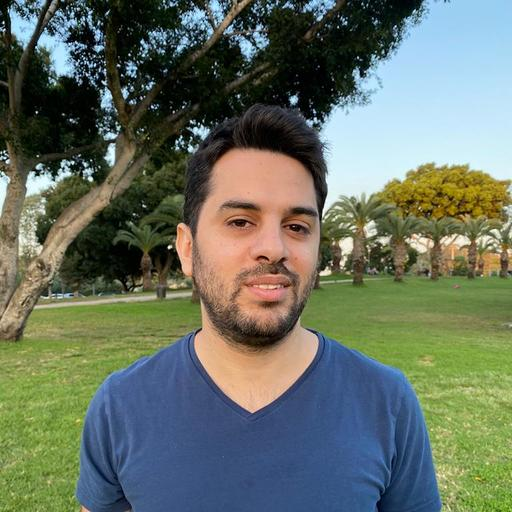
Moshiko Raboh, IBM Research - Haifa, Israel
-
Bio
Moshiko Raboh is a computer vision and machine learning research scientist in the Medical Imaging Solutions group at IBM Research - Haifa. He obtained his computer science M.Sc and double-major computer science and physics BSc at Tel-Aviv University and gained over the years a rich experience both as a computer vision and machine learning research scientist and as a software architect.
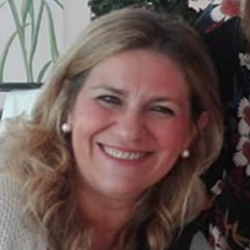
Anna Maria Anniciello, National Cancer Institute – IRCCS – Fondazione Pascale, Naples, Italy
-
Bio
Anna Maria Anniciello received the doctoral degree in Medicine and Surgery at the University "Federico II" of Naples, Italy, 110/110 and holds the specialization in Anatomic Pathology at the University Federico II of Naples, Italy, "cum lode". She holds a Ph.D in Clinical and Pathological Morphology. She is a pathologist at the National Cancer Institute- IRCCS-Fondazione Pascale, Naples, Italy. Her work focuses on the areas of skin, breast and head-neck pathology. She is co-author of many scientific articles published in international journals and conferences and has been actively involved in many international and national projects, mainly for research on skin of annexes and mammary gland pathologies. She is currently collaborating on the projects regarding Artificial Intelligence Technology and Cognitive Systems for precision medicine.
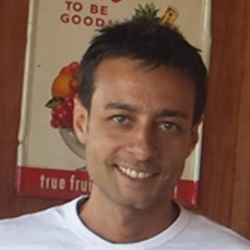
Giosuè Scognamiglio, National Cancer Institute – IRCCS – Fondazione Pascale, Naples, Italy
-
Bio
Giosuè Scognamiglio received his M.Sc. degrees in "Medical Biotechnology" and the specialization in clinical pathology at University "Federico II" of Naples, Italy, in 2009 and 2016 respectively. From 2010 to date, he is a researcher in the pathology department at the National Cancer Institute G. Pascale of Naples, Italy. His research field focused on the research of prognostic and predictive tumour biomarkers, biobanking and digital pathology. He is author of many scientific publications in international scientific journals in the health field and computer science. He is currently involved in Artificial Intelligence projects and Cognitive Systems for precision medicine.
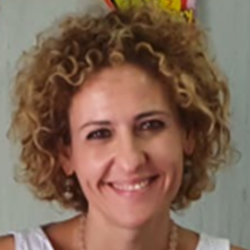
Florinda Feroce, National Cancer Institute – IRCCS – Fondazione Pascale, Naples, Italy
-
Bio
Florinda Feroce received her degree in Medicine and Surgery “cum laude” at the “Second University of Studies of Naples” in 2003. She obtained the specialization in Pathological Anatomy in 2009 and the II level Master Degree in Health Management at University “Federico II” of Naples, Italy in 2019. She is a medical executive in the Pathology Unit, National Cancer Institute – IRCCS- Fondazione G.Pascale, Naples, Italy. Her diagnostic activity is aimed at all sectors of histocytopathological diagnostics in surgical pathology. She also dealt with autopsy pathology and molecular pathology. She has teaching assignments in histology and pathological anatomy at University “Federico II” of Naples, Italy. She is co-author of international scientific publications on neoplasms and participates in international and national research projects on breast cancer and on diagnosis, prognosis and customization of therapy in head and neck tumors. She also participates in clinical studies on kidney, urinary tract, prostate and testicular tumors. She is actively involved in Artificial Intelligence Technology projects and Cognitive Systems for precision medicine.
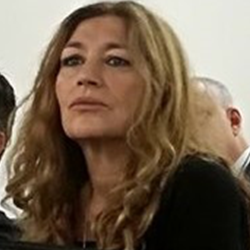
Maria Frucci, National Research Council of Italy, ICAR-CNR, Naples, Italy
-
Bio
Maria Frucci is senior reseacher at the National Research Council (CNR) of Italy. She is head of the Artificial Intelligence in Image and Signal Analysis group at the Institute for High-Performance Computing and Networking (ICAR-CNR) carring out design and development of Artificial Intelligence models and methods for the automatic analysis of images and signals in Medical/Biological Imaging and Healthcare. Maria has been Adjunct Professor in Computer Science at the University “Federico II” of Naples, teaching algorithms and data structures. She is a member of the Italian Association for Computer Vision, Pattern Recognition and Machine Learning (CVPL) and was member of the Governing Board of the Italian Group of Researchers in Pattern Recognition (CVPL-ex GIRPR). Before joining CNR, Maria worked as a researcher at the Centre for Informatics and Industrial Automation Research (CRIAI) where she was in charge of the Artificial Intelligence and Image Analysis research group of CRIAI that conducted numerous research activities in the field of Natural Language, Expert Systems and Shape Analysis. She received the doctoral degree "cum laude" in Physics from the University “Federico II” of Naples, Italy. Maria has been involved in the organization of several international conferences and has published more than 110 papers on different topics such as Natural Language, Perception, Computer Vision, Pattern Recognition and Deep Learning. She has participated to two international competitions (BACH 2018 and SSRBC 2017), resulting for both at the second position in the ranking. She has co-organized the recent Workshop "Artificial Intelligence for Digital Pathology" (AIDP) in ICPR2020.
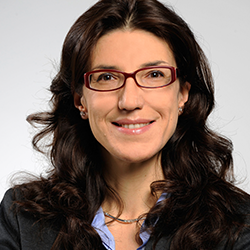
Maria Gabrani, IBM Research - Zurich, Switzerland
-
Bio
Maria Gabrani is manager of the Cognitive Healthcare and Lifesciences group that focuses on ingesting, analyzing and integrating textual, imaging and molecular data for building health knowledge and disease understanding and supporting decision making in numerous applications. She has also global IBM Research roles, as one of the strategists in Future of Health and specifically in the areas of oncology and knowledge representation, as well as a member of the Exploratory Lifesciences Council of IBM Research. Before joining IBM, from 1999 until 2001, Maria worked for Philips Research, in Eindhoven, The Netherlands. She has co-organized a number of Workshops, with the latest being the AIDP Worskhop in ICPR2020, the LL-COVID19 Workshop in MICCAI 2021, and the ELAINE Workshop in AMIA 2021.
- Registration
- Submission (TBD)
- Contact the Organizers
- Leaderboard (TBD)
